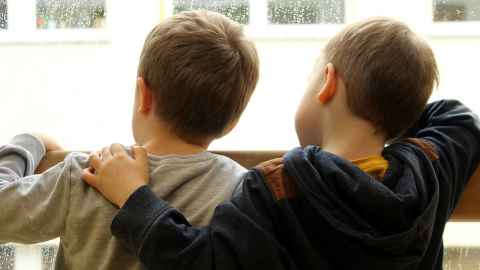When will we know the lockdown is working?
30 March 2020
Opinion: Alert level 4 is on, however it may take a few weeks for us to see the results of the lockdown. Associate Professor Siouxsie Wiles explains the COVID-19 lag.

Just before midnight on Wednesday March 25, Aotearoa New Zealand entered a countrywide alert level four lockdown. For at least the next four weeks, everyone who isn’t an essential worker is confined to their bubble. We are doing this to stop the explosive growth in people contracting and dying from COVID-19 that so many other countries are experiencing. Over the last few days, there have been more than 100,000 new confirmed cases globally. This number is likely a massive underestimate as many countries either can’t test every suspected case or are choosing not to.
So, during this lockdown we have one really important job to do. And that is to stay in our bubbles and save lives.
Understanding the COVID-19 lag
I’m sure many of us have spent the first few days of lockdown trying to figure out how we do this for the next four weeks. But once the novelty has worn off, lots of people are going to be wondering if the lockdown is even working. And that’s why you need to understand the lag.
The lag is what happens because it takes roughly two to 10 days for people who are exposed to the COVID-19 coronavirus to come down with symptoms. This is the disease’s incubation period. This means that the cases we are seeing confirmed now are a reflection of what happened two weeks ago. Hence the lag.
That’s why people who have been exposed to the virus, or who travelled here from another country, needed to self-isolate for 14 days. If they were incubating the virus, severely limiting contact with other people massively limits the number of other people they could unknowingly pass it on to. That’s also why we are now in our bubbles.
The lag means the cases announced yesterday and today are from people getting COVID-19 at some point in the last two weeks. So even though we are in a level four lockdown now, the number of confirmed cases will continue to rise. And they may rise quite dramatically, so prepare yourself for that.
The important thing to remember is those cases don’t mean lockdown isn’t working. They just reflect our two sources of COVID-19 cases: the little pockets of community transmission we now know had started, and the thousands of Kiwis who have been travelling home over the last few weeks from countries with exploding numbers of cases.
Remember, though, not every Kiwi travelling back from overseas will be incubating the virus!
Countries like Taiwan, Singapore, and Hong Kong also experienced these lags when they brought measures in to control the spread of COVID-19.
When will we know lockdown is working?
Because of the lag, we won’t start to see the impact of the lockdown for another two to three weeks. And that is precisely at the time when we will all be feeling frazzled and frustrated. When that happens, we all need to remember the important job we are doing. And that is staying in our bubbles. Because only by staying in our bubbles will we stop the spread of COVID-19 and save thousands of lives.
Associate Professor Siouxsie Wiles is a microbiologist from the Department of Molecular Medicine and Pathology in the Faculty of Medical and Health Sciences' School of Medical Sciences.
This article reflects the opinion of the author and not necessarily the views of the University of Auckland.
Used with permission from The Spinoff, Siouxsie Wiles & Toby Morris: When will we know the lockdown is working? 27 March 2020.
Media contact
Nicola Shepheard | Media adviser
DDI: 09 923 1515
Mob: 027 537 1319
Email: n.shepheard@auckland.ac.nz